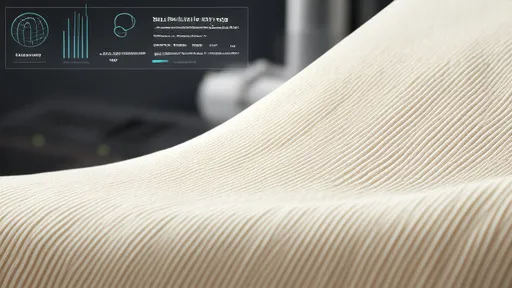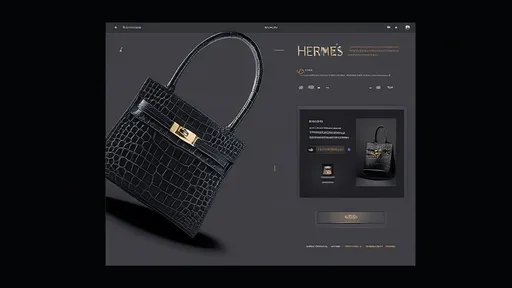In the ever-evolving landscape of digital commerce, the battle for consumer attention has shifted decisively toward private domains. For luxury brands, this arena is not just about sales; it is about cultivating an exclusive ecosystem where brand identity, customer loyalty, and personalized experiences converge. WeChat, with its multifaceted mini-program ecosystem, has emerged as the quintessential platform for this private domain warfare. Unlike the open, often chaotic realms of public social media, WeChat offers a controlled, intimate environment where high-end brands can orchestrate every touchpoint of the consumer journey.
The allure of WeChat for luxury brands lies in its seamless integration of social interaction, content dissemination, and e-commerce functionality. Mini-programs, lightweight applications embedded within the WeChat environment, serve as the linchpin of this strategy. They enable brands to create immersive, brand-specific experiences without requiring users to download separate apps. This frictionless access is crucial in an era where consumer patience is thin and expectations for instant gratification are high. For a discerning luxury clientele, the ability to explore, engage, and purchase within a single, trusted platform aligns perfectly with their demand for convenience and exclusivity.
One of the most significant advantages of the WeChat ecosystem is its capacity for deep customer relationship management. Through official accounts and mini-programs, brands can gather rich data on user preferences, behaviors, and purchase history. This data becomes the foundation for hyper-personalized marketing efforts. Imagine a scenario where a customer who previously browsed a limited-edition handbag receives a tailored message inviting them to an exclusive virtual launch event, complete with early access to purchase. This level of personalization, executed within the private confines of WeChat, fosters a sense of VIP treatment that is central to the luxury ethos.
Moreover, WeChat's social features empower brands to leverage the power of community and influence. Luxury purchases are often socially motivated; they are statements of identity and belonging. WeChat groups, moments, and influencer collaborations within the platform allow brands to create curated communities around their products. A brand might establish a members-only group for its top clients, offering them first dibs on new collections, insider design stories, and direct interactions with brand ambassadors. This transforms customers into brand advocates, amplifying reach through trusted peer networks rather than broad, impersonal advertising.
Content is the lifeblood of this private domain strategy. High-end brands are no longer mere sellers of products; they are publishers of a lifestyle. WeChat provides the perfect canvas for this narrative-driven approach. Through beautifully crafted articles, short videos, and interactive lookbooks hosted on their mini-programs, brands can tell their stories in a rich, engaging manner. This content does not always have to be overtly commercial. A heritage watchmaker might publish a series on the art of horology, or a fashion house might offer a behind-the-scenes look at its sustainable sourcing practices. By providing value beyond the product, brands build emotional equity and intellectual connection with their audience.
The integration of e-commerce functions within these content experiences is where the magic truly happens. WeChat mini-programs support sophisticated shopping features, from virtual try-ons and AR-powered product displays to seamless checkout processes linked to WeChat Pay. This blurs the line between inspiration and transaction. A user reading an editorial about "The Art of Evening Wear" can immediately reserve the featured gown for a private fitting at a nearby boutique or purchase it directly online. This closed-loop system captures intent at its peak, dramatically reducing the friction that often plagues online luxury sales.
However, succeeding in the WeChat ecosystem requires more than just technological adoption; it demands a nuanced understanding of the Chinese luxury consumer. This demographic is digitally native, highly informed, and values authenticity and cultural resonance. Brands must localize their content and engagement strategies accordingly. Collaborations with key opinion leaders (KOLs) who genuinely align with the brand's values, celebrations of local festivals, and initiatives that reflect Chinese aesthetics can significantly enhance relevance and acceptance.
Furthermore, the private domain war on WeChat is intensifying, with brands competing not just on product quality but on the quality of the digital experience they provide. The leaders in this space are those who view their mini-program not as a simple storefront but as a dynamic flagship store in the digital realm. They continuously innovate with features like gamification to drive engagement, limited-time flash sales to create urgency, and loyalty programs that reward interaction, not just expenditure. The goal is to make the mini-program an indispensable part of the customer's lifestyle.
In conclusion, the battle for supremacy in the private domain is defining the future of luxury retail in China and beyond. WeChat's mini-program ecosystem offers a powerful arsenal for high-end brands to build deeper, more profitable relationships with their customers. By mastering the art of personalized engagement, community building, and seamless commerce within this walled garden, luxury brands can not only survive but thrive in the increasingly competitive digital landscape. The brands that will emerge victorious are those that recognize this not as a marketing channel, but as the new frontier for brand building itself.

By /Aug 21, 2025

By /Aug 21, 2025

By /Aug 21, 2025

By /Aug 21, 2025

By /Aug 21, 2025

By /Aug 21, 2025

By /Aug 21, 2025

By /Aug 21, 2025

By /Aug 21, 2025

By /Aug 21, 2025

By /Aug 21, 2025

By /Aug 21, 2025

By /Aug 21, 2025

By /Aug 21, 2025

By /Aug 21, 2025

By /Aug 21, 2025

By /Aug 21, 2025

By /Aug 21, 2025

By /Aug 21, 2025

By /Aug 21, 2025